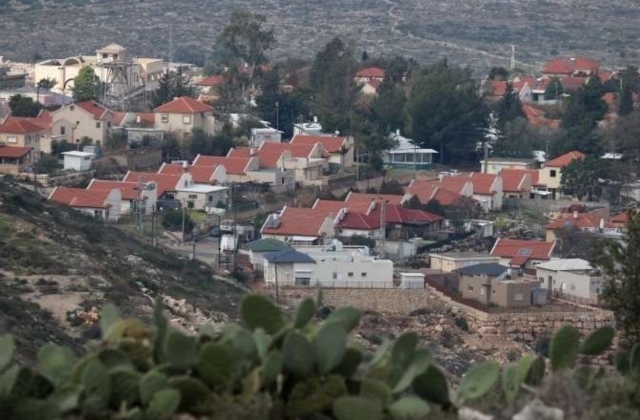Yesterday, (Wednesday), Israel took a decisive step toward fortifying its national heritage by formally recognizing three outposts—Avigayil, Asahel, and Beit Hoglah—in Judea. This was made possible through the approval of Major General Yehuda Fox, the head of the IDF’s Central Command. The move is more than just a bureaucratic process; it symbolizes Israel's steadfast commitment to expanding Jewish settlements, and significantly, it delivers on promises made to the Religious Zionism party during vital coalition negotiations earlier this year.
Legitimization of Municipal Boundaries
The approval implies that these outposts are no longer merely makeshift establishments but are now formally recognized settlements within the Israeli state. While many in the international community continue to label all Jewish settlements as illegal, this decision aligns with the internationally recognized Oslo Accords that Israel signed with the Palestinian leadership, which explicitly place Area C under Israeli administrative jurisdiction. As a result of this legitimization, each of these communities will now benefit from officially designated municipal boundaries, granting them the authority to carry out administrative and development tasks within these perimeters.
הסדרת הישובים שלשת הישובים בהר חברון, אביגיל, עשהאל ובית חוגלה הם צעד גדול בפיתוח הישוב היהודי ביהודה ושומרון.
— אביחי בוארון (@AvichayBuaron) September 7, 2023
ממשלת ישראל בראשות הליכוד וראש הממשלה נתניהו, היא ממשלה לאומית שפועלת למען ההתיישבות ומביאה לשינוי מדיניות עמוק ביחס להתיישבות ביו"ש. הממשלה מרחיבה ישובים קיימים,… pic.twitter.com/FTHsGDypmr
The Politics of Coalition Promises
Legalizing these outposts was not a spontaneous act but rather part of a larger government strategy that was put in motion in February. This strategy aims to legalize a total of nine outposts and is the result of intense negotiations and commitments made to the Religious Zionism party. Finance Minister Bezalel Smotrich, who also leads the Religious Zionism party, has been instrumental in overseeing the Civil Administration. This department of the Defense Ministry has been chiefly responsible for drafting the new municipal boundaries for these settlements.
The Road Ahead for Residential Development
Following this milestone, a detailed master plan for residential construction is now awaiting final approval from the Civil Administration's Higher Planning Committee. This committee's ratification will offer retroactive legality to existing structures, in addition to sanctioning new construction projects. Although the process is complex and could extend over several months, its completion will significantly advance the settlements' infrastructural and social fabric.
שלב משמעותי ביותר נחתם היום בדרך לעצמאותם המלאה של היישובים אביגיל, עשהאל, ובית חוגלה.
— מועצת יש''ע (@YESHA_council) September 6, 2023
אנחנו מודים לשר במשרד הביטחון, @bezalelsm ולאנשי צוותו על הובלת התהליך וקידום ההתיישבות ביהודה שומרון ובקעת הירדן 🇮🇱 https://t.co/xdZneoo1NH
A Closer Look at Settlement Expansion and Land Allocation
The newly formalized municipal boundaries have led to significant territorial expansions. Avigayil will now encompass an area of 202 dunams, up from its initial 85 dunams. Asahel will expand drastically to cover 880 dunams. Beit Hoglah, which was established in 2001 without prior governmental approval, will now have all pending demolition orders against its 22 housing units rescinded, thereby ensuring its residents' continued habitation.
Political Reactions and Affirmations
Finance Minister Smotrich extolled the importance of this milestone, emphasizing that it signifies the growth and perpetuation of Judea and Samaria—lands intrinsic to Israel's historical and cultural identity. He expressed his gratitude towards the Civil Administration and the Settlement Directorate within the Defense Ministry for their role in this groundbreaking achievement.
Counterarguments and Criticisms
Nevertheless, organizations like Peace Now have criticized the move, arguing that it's a stepping stone toward West Bank annexation. Such claims not only overlook the Oslo Accords—which cede administrative control of Area C to Israel—but also fail to account for the democratic frameworks that Israel is founded upon.
“Biden and MBS should insist Israel freezes settlement building in areas earmarked for a Palestinian state; not legalize any more wildcat settlements; and, most important, insist Israel transfer territory from Area C to Areas B and A”
— Hussein Ibish (@Ibishblog) September 6, 2023
@tomfriedman https://t.co/eff6Jkp4iJ
Israel’s formal recognition of these three outposts serves as a reaffirmation of its unwavering commitment to the development and sustainability of Jewish settlements in regions that are both historically and legally under its governance. This monumental action illustrates Israel's continual dedication to reinforcing its Zionist principles and bolstering its national integrity.


